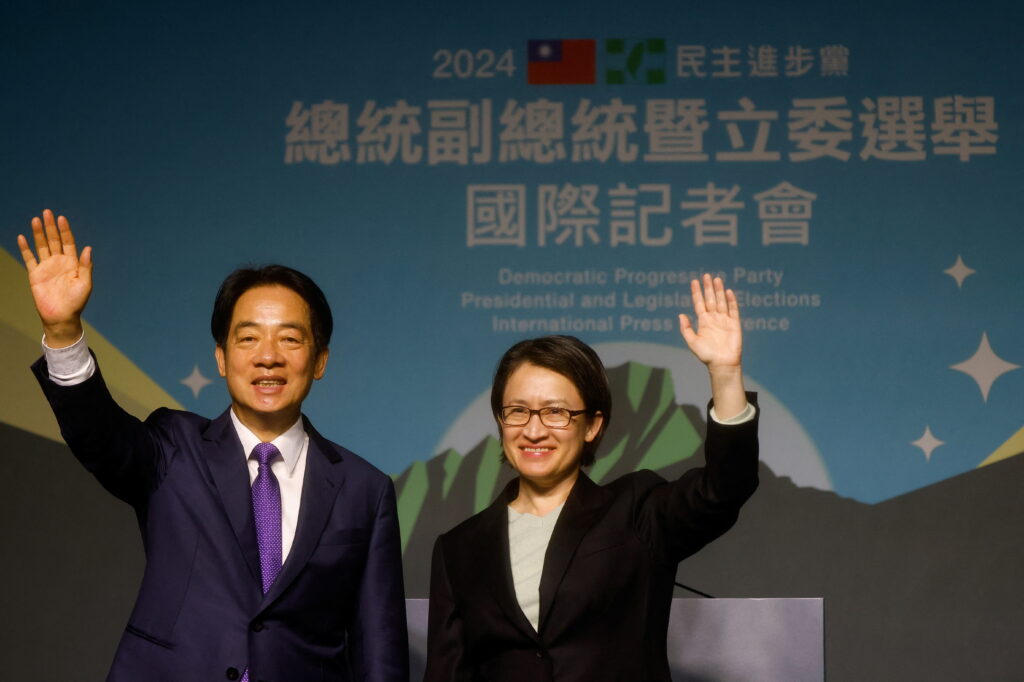Following Taiwan’s general elections in January 2024, where the Democratic Progressive Party won a third term, South Asian countries released a range of statements supporting China’s claim that Taiwan is an inalienable part of China’s territory, and on upholding ‘One China’ principle. The outpour of support showcases Beijing’s use of economic and political influence in the region to control the discourse over Taiwan.
A spokesperson from Afghanistan’s Ministry of Foreign Affairs stated that the country was committed to the ‘One China’ principle and considered interference in China’s internal affairs ‘provocative and detrimental’ to regional peace and stability. The Taliban government recently exchanged envoys with China and is seeking broader recognition and investment, making these comments unsurprising.
The Bangladeshi Ministry of Foreign Affairs reiterated its firm adherence to the ‘One China’ principle. The statement also urged the parties concerned to refrain from any ‘unwarranted provocation’ and work towards regional peace and stability. Regarding Chinese engagement, Bangladesh’s response has been one of caution. The country appears to be less influenced by China’s economic power in its political and diplomatic measures, which can be seen in its relatively tepid statement.
The Maldives released a strong statement of support for China. It stated that the country is firmly committed to the ‘One China’ principle. Referencing the Joint Communique issued during President Mohamed Muizzu’s recent visit to China, it reaffirmed that Taiwan was an inalienable part of China’s territory and opposed separatist activities towards an independent Taiwan. The Maldives opposed statements or actions that undermined China’s sovereignty and territorial integrity, and made it a point to highlight that the country would not develop official relations with Taiwan.
The Maldives explicitly stated that it opposed external interference in China’s internal affairs, and that it supported ‘all efforts’ made by China to achieve national reunification — a hardline view taken by the government that indicates support for the use of the military. The Maldivian response, while unusually long and detailed, is in line with Muizzu’s foreign policy outlook and his active courting of China and pivoting away from the previous administration’s ‘India-First’ foreign policy approach.
Speaking at an event hosted by Chinese embassy in Kathmandu soon after the elections, Nepali Prime Minister Pushpa Kamal Dahal reiterated commitment to ‘One China’ principle and stated that Nepal recognised Taiwan being an ‘inalienable part’ of China’s territory. He added that domestic and external situations have not influenced Nepal’s position on Taiwan. The Dahal also alluded to the joint China–Nepal statement between the two countries during his visit to China in September 2023, which stated that Nepal was against Taiwan’s independence.
Pakistan’s Ministry of Foreign Affairs stated that its policy on Taiwan was consistent and clear — it views Taiwan as an inalienable part of China. It added that Pakistan adhered to the ‘One China’ policy, and called for non-interference in the domestic affairs of all countries in line with the UN Charter. Pakistan’s response appears more balanced, despite its robust relations with China.
Sri Lanka’s Foreign Minister, Ali Sabry, commented that Sri Lanka remained steadfast in advocating and upholding the ‘One China’ policy, and that Sri Lanka aspires for a ‘harmonious reunification’ of China. Harmonious in this context can be taken as supporting peaceful means of reunification rather than military ones. A spokesperson from Sri Lanka’s Ministry of Foreign Affairs stressed that Sri Lanka recognises the People’s Republic of China as the sole legal government representing the whole of China’.
The Indian government has not yet formally commented on Taiwan’s elections or congratulated the new leadership. But the Dalai Lama, who is based in Dharamshala, India, wrote to president-elect Lai Ching-te to offer his congratulations. He stated that the ‘exercise of democracy’ in Taiwan was a source of encouragement to those ‘who aspire to live in freedom and dignity’. The Dalai Lama also wished Lai success in ‘fulfilling the hopes and aspirations’ of the people of Taiwan. Outgoing Taiwanese president, Tsai Ing-wen, responded to the letter, thanking the Dalai Lama.
Sikyong Penpa Tsering, the political leader of the Central Tibetan Administration, which is also based in Dharamshala, and Deputy Speaker Dolma Tsering Teykhan, both sent congratulatory letters to Lai. Tsering stated that Lai’s victory stood as a testament to the commitment of Taiwanese people to democracy and freedom. He added that Lai’s recent statement on the future of Taiwan being decided by its own people ‘resonates deeply’ with Tibetans.
South Asia’s responses to Taiwan’s elections highlight the discourse that comes with China’s engagement. Apart from India and Bhutan, the latter of which does not have a formal diplomatic relationship with China or Taiwan, the remaining South Asian nations have all signed on to China’s Belt and Road Initiative. Loans and infrastructure projects are abundant and China is an important economic partner.
With the Indian Ocean becoming a centre of geopolitical competition, Beijing’s influence and presence will only increase. Statements of support are part of China’s toolkit for cementing its claims over Taiwan. The supportive messages from South Asia are an indicator of Beijing’s success in controlling the narrative about Taiwan and underscores how economic power can be used for political and diplomatic ends.
Shantanu Roy-Chaudhury is Master’s student at the S Rajaratnam School of International Studies (RSIS), Nanyang Technological University, Singapore. He is author of The China Factor: Beijing’s Expanding Engagement with Sri Lanka, Maldives, Bangladesh, and Myanmar.

